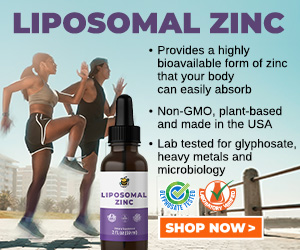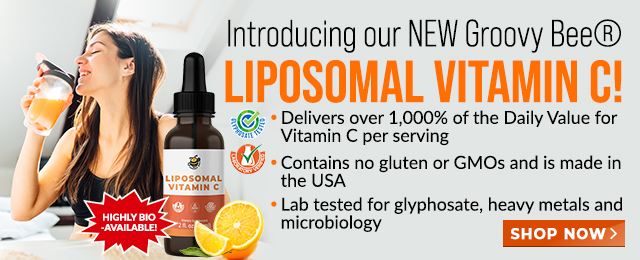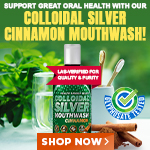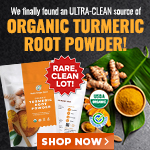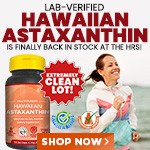
Avoid Overexposure to Aluminum
Friday, October 01, 2010 by: Cindy Jones-Shoeman
Tags: aluminum, toxicity, health news
- Newly released JFK files reveal Pentagon's role in creating Lyme disease and covid in the same lab
- Oncologist warns of ‘terrifyingly aggressive’ cancers in children, linked to immune suppression from COVID vaccines
- Trump administration CUTS FUNDING to Gavi, the Vaccine Alliance - a major blow to the Bill Gates-backed entity
- Health Ranger Report: Ashton Forbes discusses TELEPORTATION ORBS and their role in MH370 disappearance
- Musk targets “strangely wealthy” lawmakers in DOGE probe, names Pelosi, McConnell, Schumer
- NIH study, buried for decades, reveals that Flu Shots INCREASE elderly deaths, not prevent them
- EPA banned chemical linked to cancer, Parkinson's and fatal heart defects in babies - now industry is lobbying to get it reinstated
- At least 75 percent of Americans are unknowingly MEDICATED FOR STUPIDITY by fluoridated water – Utah now banning it
- Millionaire fitness coach charged in Tesla vandalism incident as anti-Musk attacks escalate
- Woman contracts WORLD'S DEADLIEST VIRUS after unknowingly being given the WRONG VACCINE
- “Ethically sourced” human “bodyoids” could usher in a new era of medical exploitation, raising disturbing ethical questions
- COVID-19 scandal linked to CANCER SURGE: Billionaire researcher sounds alarm
- Civil war is here – Multiple events, from conservatives being “swatted,” to attacks against Telsa owners, happening across America as Dem politicians are telling supporters to ‘fight in the streets”
- U.K. unveils controversial pandemic preparedness tool: A double-edged sword?
- Tackling the rubber waste crisis: Groundbreaking study reveals eco-friendly method to recycle tires
- DARPA: The shadowy innovator behind the world’s most advanced military technologies
- Homesteading Boom: How families are escaping cities to grow their own food
- NYT admits U.S. ran Ukraine war operations-Russia's victory exposes obsolete NATO tactics, says Mike Adams
- Newly released JFK files reveal Pentagon's role in creating Lyme disease and covid in the same lab
- Analysis: The coming economic collapse, a mass uprising and Trump's three secret weapons to halt the growing revolt
- Trump's greatest betrayal so far: Accelerating Middle East wars, silencing dissent, and serving Zionist masters
- CDC finally halts $11 billion COVID funding scam as health officials admit the ‘pandemic’ was a fraud
- The hidden dangers in your kitchen: How cooking methods impact diabetes, cancer and aging
- Kiss Your Genetic Privacy Good-Bye! 23andMe Gets Green Light to Sell Your Intimate Genetic Details to Anyone They Want
- DEADLY DECEPTION: How COVID vaccines increased mortality rates and why authorities hid the truth
- Dr. Suzanne Humphries makes bombshell appearance on Joe Rogan podcast, exposing vaccine industry deception back to POLIOMYELITIS
- Trump nominates VACCINE ZEALOT Susan Monarez to lead the CDC, sidelining RFK Jr.'s reform efforts
- Here are TEN all-natural ways to protect your garden without using harmful chemicals
- Woman contracts WORLD'S DEADLIEST VIRUS after unknowingly being given the WRONG VACCINE
- Senate Democrats deny censorship industrial complex existed, defend government's role in silencing dissent
- Black cumin seed oil emerges as a powerful ally against breast cancer and chronic inflammation
- Sugar-free deception: Artificial sweeteners hijack hunger signals, fuel obesity epidemic, study warns
- “Independent” anti-Russia outlet MEDUZA faces COLLAPSE as US funding dries up
- The Health Ranger releases “Vaccine Zombie” song and music video, using AI-animated zombies for the music video
- Discovery of vast underground city beneath Giza pyramids challenges human history
- Key nodes of Federal Government censorship
- Newly released JFK files reveal Pentagon's role in creating Lyme disease and covid in the same lab
- California's social media censorship law struck down: A victory for free speech or a threat to online safety?
- EPA advisor admits the agency is funneling billions to climate groups ahead of Trump’s return to White House
- The Health Ranger releases “Vaccine Zombie” song and music video, using AI-animated zombies for the music video
- Dr. Mike Yeadon releases 15-minute testimony - WATCH - about genocidal intent of COVID “vaccines”
- Florida takes a stand: DeSantis proposes permanent ban on mRNA vaccine mandates
- “Why we influenced the 2020 elections”: Facebook files reveal the coordinated effort to bury the Hunter Biden laptop story
- Mike Adams releases country western hit single: Goin’ Back in Time is Comin’ Home
- The pandemic as a tool for INDOCTRINATION: Understanding “The Indoctrinated Brain” by Dr. Michael Nehls
- Unpacking the Lies That We’ve Been Fed – new song and music video released by Mike Adams, the Health Ranger
- Mike Adams releases music poetry sensation: A Child of God
- House Intelligence Committee calls for the ARREST and PROSECUTION of Dr. Anthony Fauci
- Rep. Nancy Mace introduces bill to ban biological males from female facilities on federal property
- Michigan sheriff announces criminal investigation into 2020 election crimes, Dominion Voting Systems
- Peter Rost exposes Big Pharma corruption in his book “The Whistleblower: Confessions of a Healthcare Hitman”
- Migrants are taking advantage of recent hurricanes to scam residents and loot their homes
- Sugarcane extract superior to cholesterol-lowering drugs?
- Survival 101: Effective EMF blocking techniques
- Red Cross issues warning to stop blood plasma donations from vaccinated people
- Scientists confirm: GENIUS brain function can be spontaneously unleashed in humans without any apparent cause
- EPA advisor admits the agency is funneling billions to climate groups ahead of Trump’s return to White House
- HYSSOP: What research reveals about the health benefits of this ancient holy herb
- Two containers with completed ballots fall out of truck in Florida
- Fully vaccinated about to see “tsunami” of illness and death, warns virologist
- Global leaders unite to clamp down on “misinformation” with UN-backed Cascais Declaration
- BREAKING: 2025 NDAA authorizes mandatory military draft of WOMEN across America… as Pentagon pursues global NUCLEAR war with both Russia and China at the same time
- Michael Yon warns of a ZIONIST TAKEOVER in Trump’s second administration
- BOMBSHELL: DNA testing kits are a SCAM to develop ethnic-specific bioweapons
- Ozempic and Wegovy weight loss drugs are injectable LIZARD VENOM PEPTIDES that may unleash a devastating wave of organ failure… side effects align with symptoms of SNAKE BITES
- Israeli soldiers accused of even more torture and abuse in the West Bank
- These 13 countries just signed an agreement to engineer a global FAMINE by destroying food supply
- NASA admits that climate change occurs because of changes in Earth’s solar orbit, and NOT because of SUVs and fossil fuels
- RFK Jr. clears key hurdle: Sen. Susan Collins backs controversial HHS nominee, signaling a new era for health policy
- Sermon 30: How Jesus reveals Caesar’s FAKE CURRENCY and FALSE AUTHORITY
- Coriander seeds: Ancient medicine backed by modern science
- Arizona officials claim Maricopa County needs 10-13 days to tabulate results of the election
The United States Department of Health and Human Services states that no one can completely avoid aluminum exposure because it is found in nature and the environment (in soil and water, for example); aluminum is, in fact, the "most abundant metal in the earth's crust." However, high levels of exposure can affect a person's health.
According to the Global Healing Center, high exposure to aluminum can cause problems with kidneys, muscles, bones, and the digestive system, among other problems. While it hasn't been proven, many researchers believe there is also a link between high concentrations of aluminum in the brain and Alzheimer's disease.
How Can People Avoid Overexposure to Aluminum?
Even though aluminum exposure is unavoidable, people can avoid additional, and unnecessary, exposure. There are ways that people can limit their exposure, including the following:
Beverages: Aluminum cans hold carbonated soft drinks and teas, and while cans are coated in a protective polymer, a dented or damaged can can cause the aluminum to leach into the drink. Aluminum water bottles are the same in that they must be coated, and if the coating is damaged, there is danger of the aluminum leaching into the water. Many people opt for stainless steel water bottles for that reason and avoid aluminum-can beverages altogether.
Food: Exposure through how people prepare food and what they eat can be diminished as well. It's best to avoid aluminum cookware and opt for cast iron, glass, or copper cookware instead. And many people prefer to use wax paper instead of aluminum foil for the same reason.
But people are also exposed to aluminum through their foods. For example, many baking powders are made with aluminum (like sodium aluminum sulfate), so many people choose to buy baking powder that is aluminum free.
Health and Hygiene Products: Most people who avoid aluminum overexposure today know, as has been reported on Natural News, that aluminum is used in the manufacture of many antiperspirant/deodorant products. However, discerning consumers can find good deodorant products that are aluminum free.
Antacids and some buffered pain relievers are also commonly made with aluminum products.
While it is impossible for people to avoid exposure to aluminum, it is possible to limit the amount of aluminum they are exposed to, whether it is by ingesting it or absorbing it through the skin. The list here covers some of the ways people can limit their exposure to this ubiquitous metal.
Sources:
http://www.atsdr.cdc.gov/tfacts22.html
http://www.globalhealingcenter.com/aluminum-...
http://alzheimers.org.uk/site/scripts/docume...
http://viewzone2.com/alzheimersx.html
http://www.differencebetween.net/miscellaneo...
http://www.globalhealingcenter.com/dangers-o...
https://www.naturalnews.com/027624_deodorant_...
About the author
Cindy Jones-Shoeman is the author of Last Sunset and a Feature Writer for Academic Writing at Suite101.Some of Cindy's interests include environmental issues, vegetarian and sustainable lifestyles, music, and reading.
Aluminum at FETCH.news
Get independent news alerts on natural cures, food lab tests, cannabis medicine, science, robotics, drones, privacy and more.
Take Action: Support Natural News by linking to this article from your website
Permalink to this article:
Embed article link: (copy HTML code below):
Reprinting this article:
Non-commercial use OK, cite NaturalNews.com with clickable link.
Follow Natural News on Facebook, Twitter, Google Plus, and Pinterest
Science News & Studies
Medicine News and Information
Food News & Studies
Health News & Studies
Herbs News & Information
Pollution News & Studies
Cancer News & Studies
Climate News & Studies
Survival News & Information
Gear News & Information
News covering technology, stocks, hackers, and more



"Big Tech and mainstream media are constantly trying to silence the independent voices that dare to bring you the truth about toxic food ingredients, dangerous medications and the failed, fraudulent science of the profit-driven medical establishment.
Email is one of the best ways to make sure you stay informed, without the censorship of the tech giants (Google, Apple, Facebook, Twitter, YouTube, etc.). Stay informed and you'll even likely learn information that may help save your own life."
–The Health Ranger, Mike Adams










